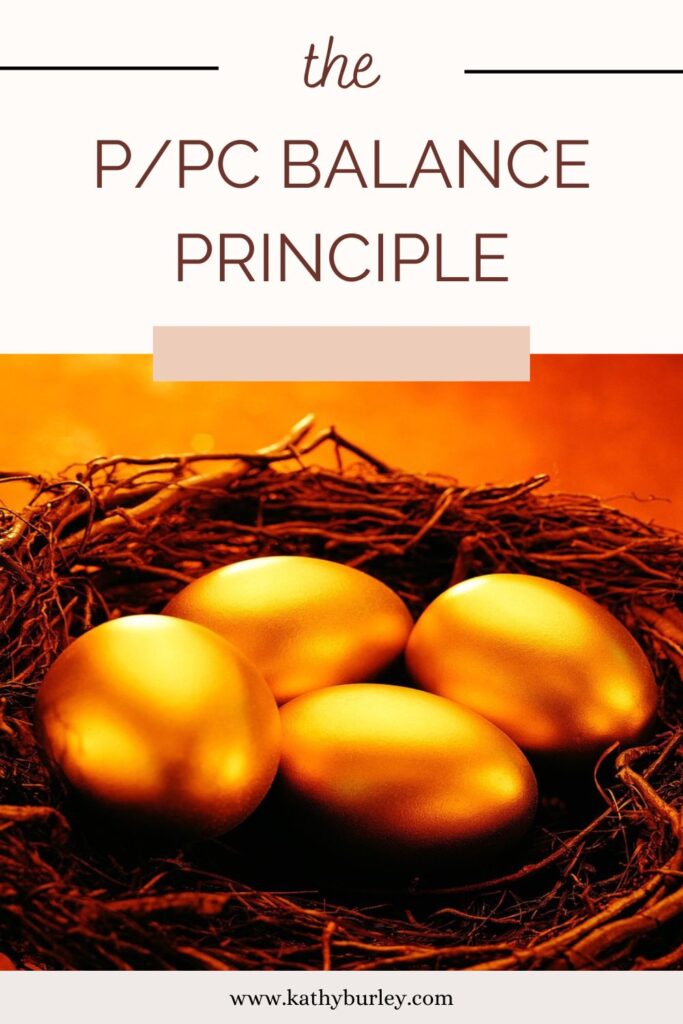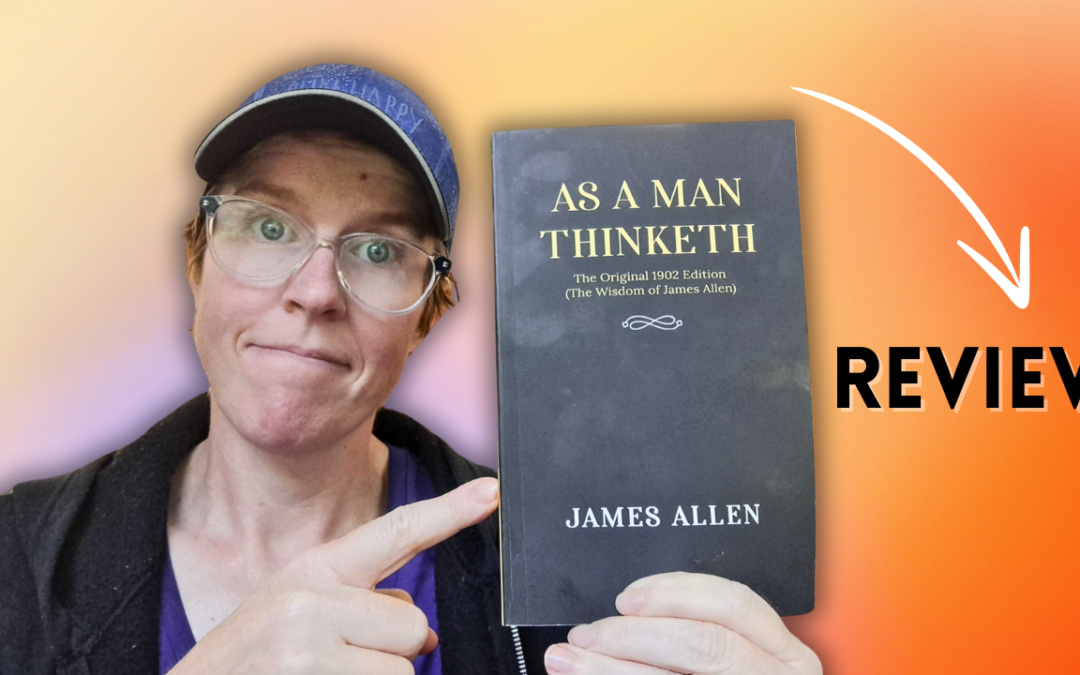The P/PC Balance Principle from The 7 Habits by Stephen Covey
I pick which habits to add in or remove from my life based on what is bothering/annoying me the most.
To get the most out of The 7 Habits, Covey suggests the reader (me) shifts their paradigm from learner to that of the teacher.
So, as I go through The 7 Habits for the third time, with the companion workbook, I am going to teach along the way.
Covey boldly guarantees that if I approach the material as if I’m going to teach it, I will not only remember what I read, but my perspective will be expanded, my understanding deepened, and my motivation to apply the material will be increased.
Sounds good to me!
Since I don’t have anybody in person to share this with, or who is willing to listen, I am going to teach you!
Hurray!
He suggests teaching the material within 48hrs of learning it, so I’m going to do my best to do so, starting off with the P/PC Balance Principle.
The P/PC Balance Principle
The 7 Habits are habits of effectiveness. Because they are based on principles, they bring the maximum long-term beneficial results possible.
They become the basis of a person’s character, creating an empowering centre of correct maps from which an individual can effectively solve problems, maximize opportunities and continually learn and integrate other principles in an upward spiral of growth.
As well, they are based on a paradigm of effectiveness that is in harmony with a natural law called the “P/PC” Balance.
P=Production
PC= Production Capability
This Principle is best illustrated through Aesop’s fable of the goose and the golden egg.
A poor farmer one day discovers in the nest of his pet goose a glittering golden egg. At first, he thinks it’s some kind of trick, but as he starts to throw the egg aside, he decides to take it to be appraised instead.
He finds out that the egg is pure gold! The farmer can’t believe his good fortune!
Day after day, he awakens to rush to the nest to find yet another golden egg. He becomes fabulously wealthy; it all seems too good to be true.
But with his increasing wealth comes greed and impatience. Unable to wait day after day for the golden eggs, the farmer decides he will kill the goose and get them all at once. But when he opens the goose, he finds it empty. There are no golden eggs, and now there is no way to get any more.
The farmer has destroyed the goose that produced them.
Lesson
The takeaway from this fable is is that true effectiveness is a function of two things:
- What is produced (the golden eggs)
- The producing asset or capacity to produce (the goose)
If you adopt a pattern of life that focuses on gold eggs and neglects the goose, you will soon be without the asset that produces the golden eggs.
On the other hand, if you only take care of the goose with no aim toward the golden eggs, you soon won’t have the means to feed yourself or the goose.
Therefore, effectiveness lies in the balance – The P/PC Balance. Production of desired results, the golden eggs. Production Capability that produces the golden eggs, the goose.

Real-Life Applications of the P/PC Balance Principle
Covey explains that there are three kinds of assets: physical, financial, and human.
Physical Asset
Covey uses a power lawnmower for this example.
A few years ago, he purchased a power lawnmower and used it over and over again without doing anything to maintain it.
The mower worked well for two seasons, but then it began to break down. When he tried to revive it with service and sharpening, he discovered the engine had lost over half its original mower capacity.
It was worthless.
Had he invested in PC, in preserving and maintaining the asset, he would still be enjoying its P – the mowed lawn.
He was stuck spending far more time and money replacing the lawn mower than he would have ever spent if he had just maintained it.
It wasn’t effective.
Keeping P and PC in balance makes a tremendous difference in the effective use of physical assets.
Just think of your vehicle. If you ignore the oil changes and let it run dry, your motor is screwed. You will need to spend a lot of money buying a new vehicle compared to the cost of regular oil changes that would have kept your vehicle running for a much longer period of time.
Financial Assets
Our most important financial asset is our own capacity to earn. If we don’t continually invest in improving our own PC, we severely limit our options. We’re locked into our present situation, running scared of our corporation or boss’s opinion of us.
Economically dependent and defensive. This simply is not effective.
When we put work into not only the P (earning an income) aspect and invest in continuing education, we can increase our PC as well, becoming more valuable in our organization or able to find a higher paying job elsewhere.
Human Assets
When two people are in a marriage and are more concerned about getting the golden eggs and the benefits, than they are about preserving the relationship that makes them possible, they often become insensitive and inconsiderate, neglecting the little kindnesses and courtesies that are important to a deep relationship.
They begin to use control levers to manipulate each other, focus on their own needs, justify their own position and look for evidence to show the wrongness of the other person.
The love, richness, softness, and spontaneity begin to deteriorate. The goose gets sicker day by day.
Takeaway
The P/PC Balance is the very essence of effectiveness. It’s validated in every arena of life.
We can work with it or against it, but it’s there. It’s a lighthouse. It’s the definition and paradigm of effectiveness upon which The Seven Habits are based.
Before I read this book, I had never heard of the P/PC Balance, but as I learn more about it, I see its application in my everyday life.
One aspect, in particular, the human asset, rings true for me.
I am recently separated from my husband and when I read the example in The 7 Habits, it hit a little too close to home.
We were concentrating on Production, he was working more to earn more money and I started a small business to help earn more money. We were both busy and totally neglected the PC, our relationship.
We didn’t make time for each other, led basically separate lives, and little by little the goose got sicker until we were both so unhappy we decided to separate.
It’s a hard pill to swallow, really.
Had we put more time and effort into our PC, we may be leading totally different lives than we are now. And probably better ones at that.
Hindsight is 20/20 as they say.
When you really stop and think about the P/PC Balance principle, and apply it to your situation, it’s not that hard to see the imbalance if there is one.
The good thing is that once you spot an imbalance, you can take the next step and try and fix it. Now, it may not happen overnight, but at least you have a direction.
Can you see how the P/PC Balance applies to your life? Please feel free to leave an example in the comments below.
Keep going, keep going, keep going….
P.S. Here are some more gems that I have picked up from The 7 Habits that have had a positive effect on my life:
More From This Category

Is It Worth Getting a Lawyer When Separating From an Uncooperative Common-Law Spouse?
Is It Worth Getting a Lawyer When Separating From an Uncooperative Common-Law Spouse?Disclaimer: This is a rather specific topic that applies to my life now. I want to preface this article by saying that this is MY OPINION based on my experience. Every separation is...

As A Man Thinketh By James Allen Book Review
As A Man Thinketh By James Allen Book ReviewAs A Man Thinketh By James Allen is a self-help book that was originally published in 1903. As the title might allude to, it’s not exactly politically correct for today’s day in age, but the messages are clear. When I read...

Navigating Single Motherhood: My Ongoing Journey to Financial Independence and Personal Growth
Navigating Single Motherhood: My Ongoing Journey to Financial Independence and Personal GrowthHi, I’m Kathy. I thought by this age that I would be living the life of my dreams. Instead, I feel more behind than ever. I am a 41-year-old single mom who lives with my...



0 Comments